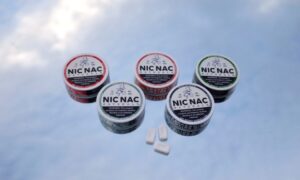The ‘Underground War’ in the Potato Fields
Underneath the quiet surface of the potato fields, a hidden war is quietly being waged. You can’t hear the drums of war, you can’t see the smoke, but the healthy potato plants are gradually showing signs of fatigue. The enemy of this war is the tiny and cunning Potato Cyst Nematode (PCN). They invade the potato’s root system unnoticed, sucking up nutrients voraciously, leaving behind wilted plants and poorly harvested fields.
These invisible enemies are not only ‘vampires’ of crops, but also thrive in the soil, becoming a nightmare for farmland for years. Faced with such a challenge, organic farmers are caught in a dilemma: the urgent need to know the potato cyst nematode management and the original intention to maintain ecological balance seem to be difficult to reconcile.
The threat of potato nematodes and the limitations of conventional methods
Potato nematodes do much more than reduce yields in a single season. Their eggs can remain dormant in the soil for years, leaving farmland in a prolonged production crisis. Infected crops often show wilted leaves, stunted tubers and even extinct yields.
For farmers who depend on potato cultivation, this means not only financial loss, but also a heavy burden on their livelihoods. In the past, many farmers have relied on chemical nematicides to cope, but these methods are not a permanent solution:
Environmental damage: chemical residues can contaminate water sources and disrupt the microbial balance of the soil.
Probiotic damage: beneficial microorganisms are mistakenly killed and soil ecology is damaged.
Risk of resistance: nematodes may evolve resistance, making subsequent management more difficult.
Farmers therefore urgently need an alternative that is both efficient and environmentally friendly, a method that can truly restore soil health.
Nature’s secret weapon – Paecilomyces lilacinus
The light of science often shines through by accident. In one experiment, scientists discovered a fungus called Paecilomyces lilacinus (later reclassified as Purpureocillium lilacinum). This tiny soil inhabitant turned out to be a natural enemy of nematode eggs!
It works with both precision and efficiency:
Spore invasion: the spores of the fungus invade the nematode egg shells and break down their protective layer.
Growth digestion: it then uses the nutrients inside the nematode egg to grow, thus ‘starving’ the unhatched nematode.
Imagine a silent ‘soil doctor’ that does not bother other organisms but concentrates on getting rid of pests. The emergence of this fungus is a ray of hope for organic farming and opens up possibilities for sustainable Purpureocillium lilacinum nematode management.
Practical example: How Nema Pro helps organic farmers
John, the operator of an organic farm in the south of the country, is a witness to this ‘underground war’. His farmland had been infested with nematodes, reducing potato yields by more than 30 per cent per hectare. He tried crop rotation and deep tilling, but still struggled to eradicate the nematode threat.
Then he tried Nema Pro, a biological solution based on Paecilomyces lilacinus
Significant results: After just one growing season, John noticed that the nematode density in the soil was significantly reduced and potato yields returned to healthy levels.
Ecological balance: What’s more, Nema Pro organic nematodes control did not disturb the ecological balance of the soil, and earthworms and probiotics remained active in the farmland.
From crisis to symbiosis, towards sustainable agriculture
From nematode invasion to fungal guardianship, this is not just a battle in the soil, it is the story of our cooperation with nature. Organic farmers are no longer alone, as science is providing them with better tools.
Biological solutions such as Nema Pro, based on Paecilomyces lilacinus, offer hope for farmland. It’s not just a product, it’s a philosophy: protect our ecosystems while protecting our crops.
Join this revolution in sustainable agriculture and become a true soil protector. Your next step could be the one that changes the future!



































